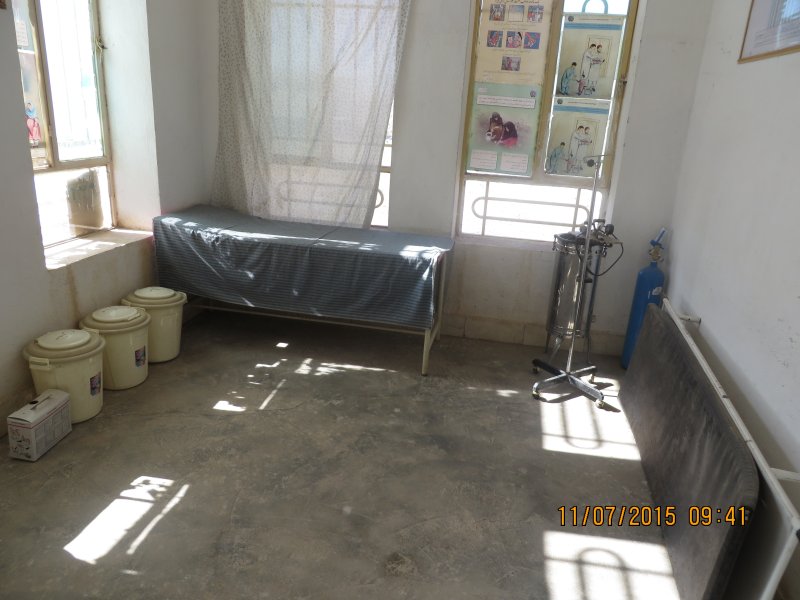A treatment room at one of the U.S.-funded public health facilities Afghanistan. the city of Kabul is addressing its heroin problem by establishing a treatment center at a former U.S. military base. Photo courtesy of SIGAR
KABUL, Afghanistan, Jan. 11 (UPI) -- Afghanistan is using an abandoned military base to house and treat drug addicts as it finally takes on a national heroin epidemic.
The Afghan government has begun a program of removing Kabul's drug addicts from beneath riverbed bridges, where they congregate amid so many needles left on the ground that they make crunching noises when anyone walks through.
Afghanistan, the world's leading opium producer, is also a vigorous heroin consumer. A UN report in December said 12.6 percent of the country's adult population, twice the world average, uses drugs, which are inexpensive and plentiful. A long-delayed government plan to combat drug abuse has begun, with addicts from under the bridges being moved to Camp Phoenix, a former U.S. military base on the outskirts of the city.
The sprawling camp, built by the United States in 2013 and handed over to Afghan forces in 2014 after it was picked clean of all material except roads and buildings, is now housing 600 people in one area. Critics say there is little therapy and little for the addicts to do, and the government is attempting to solve the drug problem by merely putting it out of sight behind the camp's 10-foot-high walls.
Dr. Wakil Qayomi, deputy director of the facility, said residents are released after 180 days. He expects relapses.
"They'll become healthy in this period, but the major problem in the country is unemployment, so once they're released, we don't have a good program to help them there, and many of them will again resort to drug use, unfortunately," he said.
Ferozuddin Feroz, Afghanistan's public health minister, was leading a roundup of addicts Jan. 2 when he was attacked by a man with a syringe, the ministry said Sunday. The assailant inserted the needle into Feroz' shoulder; although not injured he was tested for possible HIV infection and declared HIV-free. Mohammad Ismail Kawusi, the ministry's public relations director, said it was a planned attack by drug dealers angry their customers were being taken to the treatment centers.















